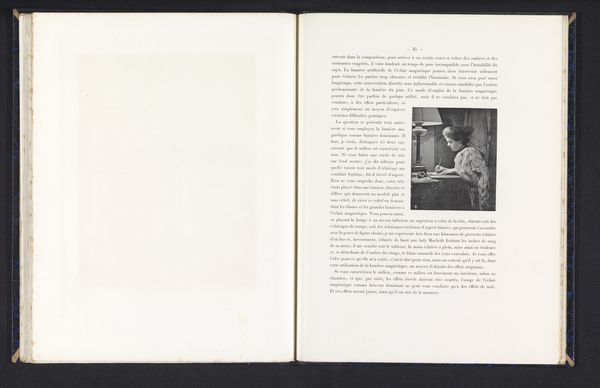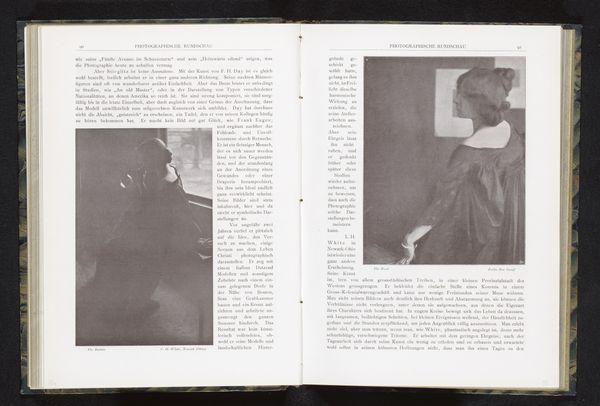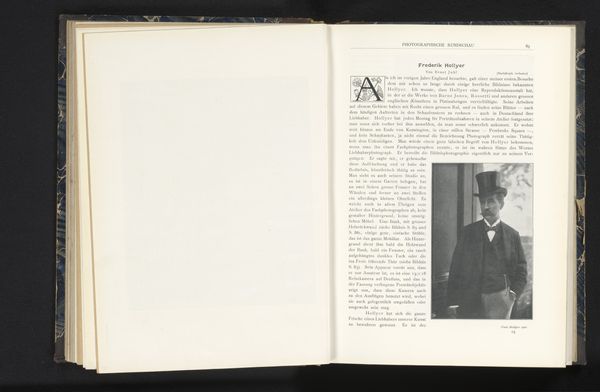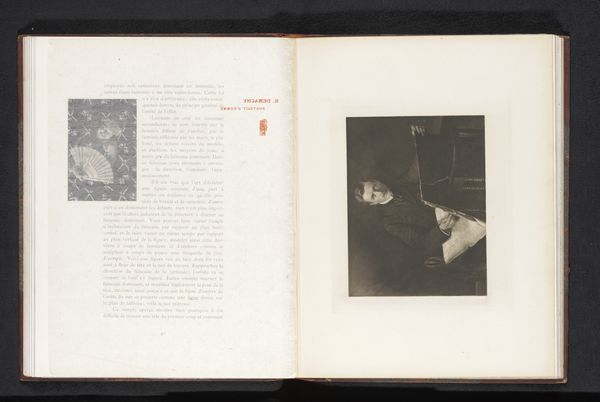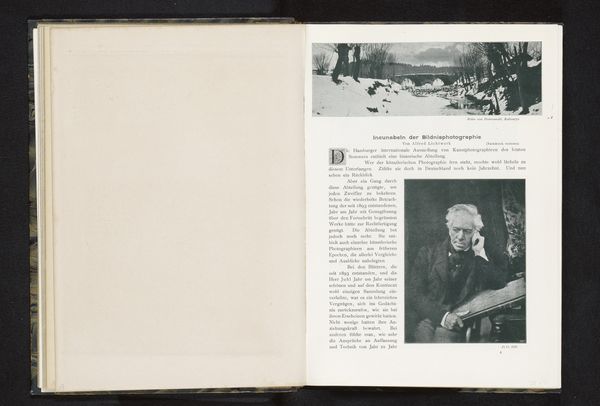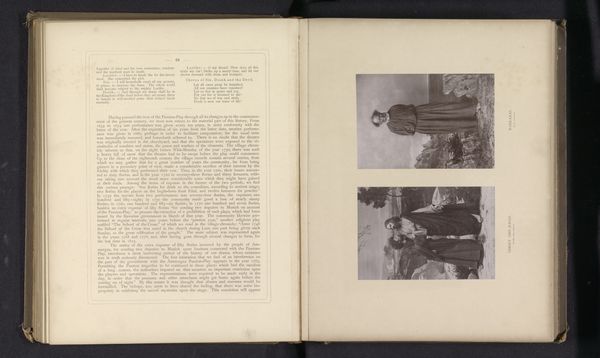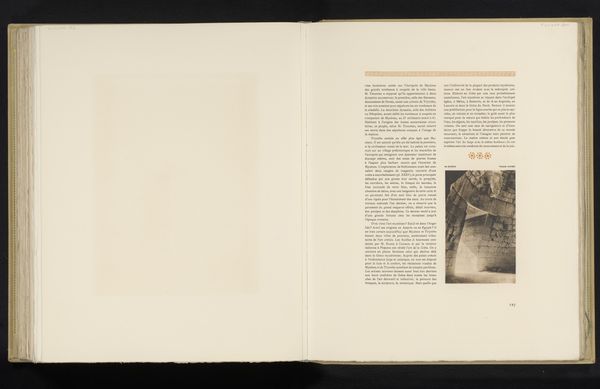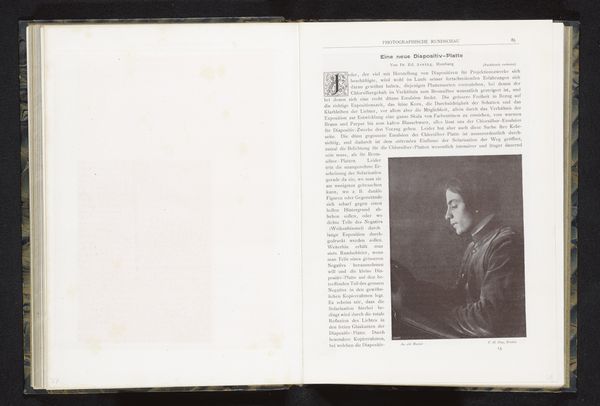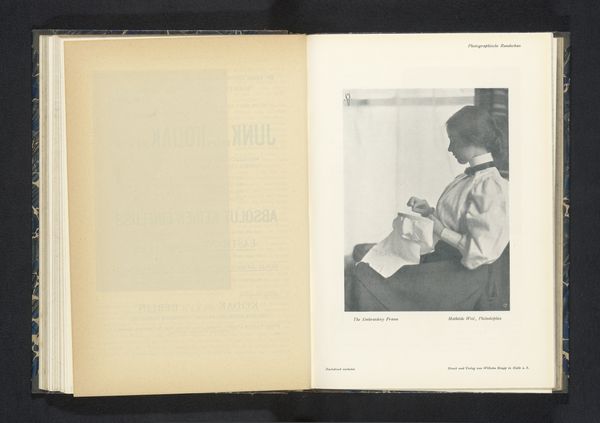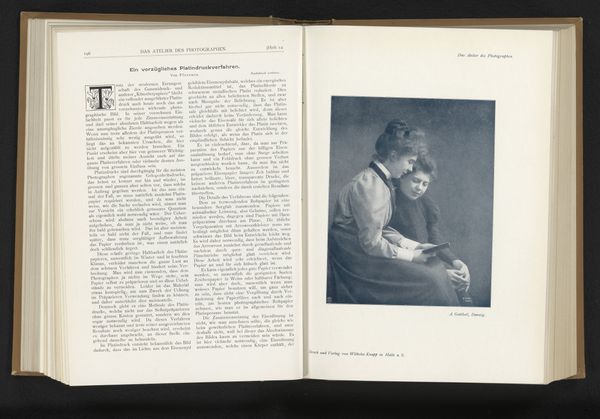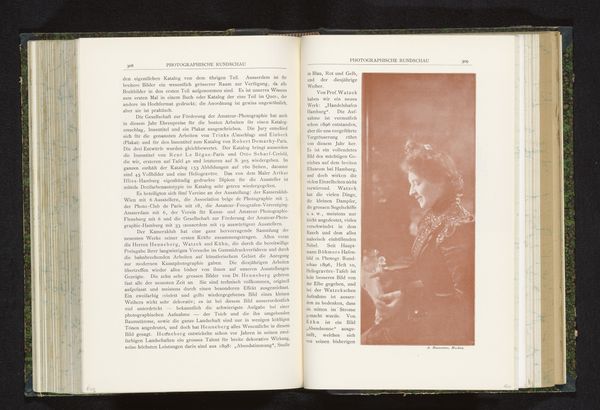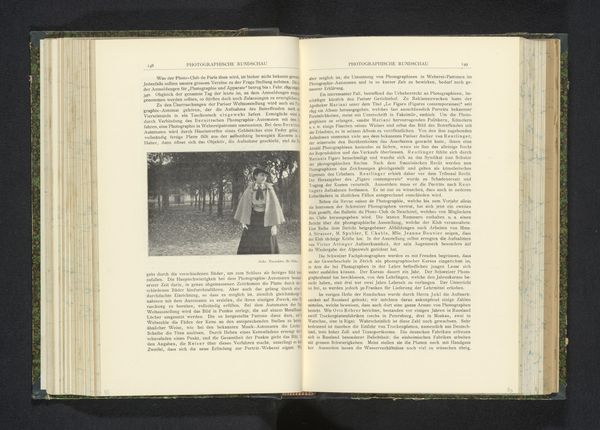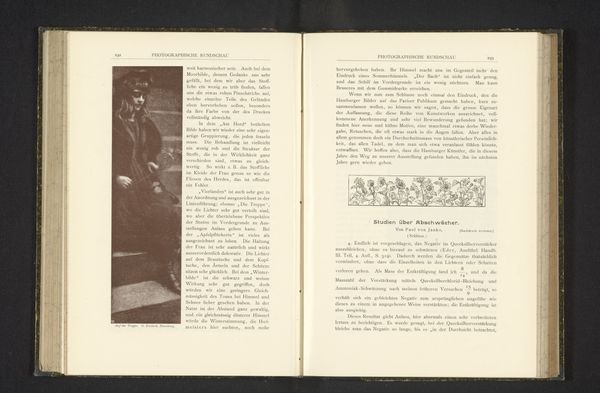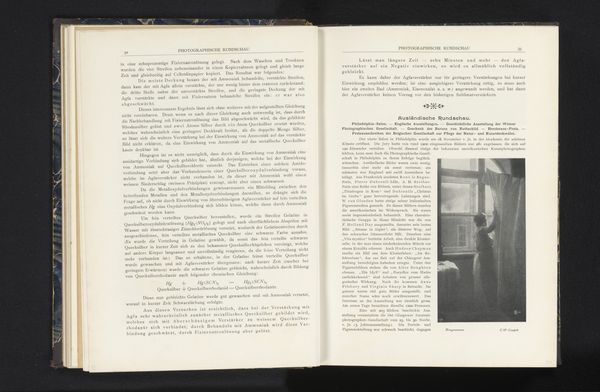
Dimensions: height 199 mm, width 77 mm
Copyright: Rijks Museum: Open Domain
Editor: Here we have Clarence Hudson White’s gelatin silver print, "Portret van een onbekende man die viool speelt," made before 1900. I find it interesting that it’s presented as a photograph *of* a photograph within a publication. What historical context shapes how we should view this image? Curator: That’s a keen observation. This wasn't created in a vacuum. The late 19th century saw photography vying for artistic legitimacy. White, aligning with Pictorialism, consciously imbued his photographs with painterly qualities – the soft focus, the evocative mood. Publishing it within this context reinforces the ambition of photography to be understood as high art. Editor: So, it's a photograph staged to look like a history painting? Curator: Precisely. Consider how photography served public and private narratives. Who was the "unknown man?" Is it truly an anonymous sitter, or did concealing his identity contribute to a broader idealized portrayal of musical artistry? This connects to the era's cultural valorization of the arts. Also, the book itself: how did the photograph function as part of this book's project? Was it used to argue a certain position or reach a specific audience? Editor: That raises a lot of good points I hadn’t considered! Thinking about it as an artistic argument changes everything. It highlights photography’s complicated role within the established art world at that time. Curator: Exactly. Recognizing those underlying socio-political elements allows for a richer experience. And it reminds us to question the role institutions played in shaping aesthetic taste. Editor: I definitely see how important it is to place works within the context of their time and understand the forces influencing their creation.
Comments
No comments
Be the first to comment and join the conversation on the ultimate creative platform.
